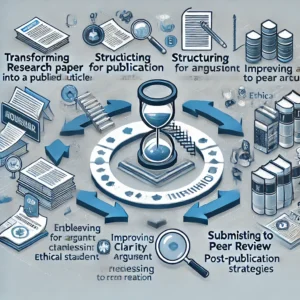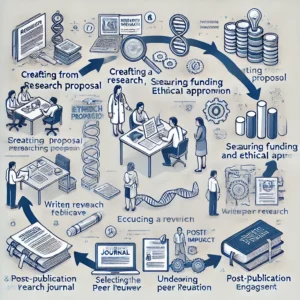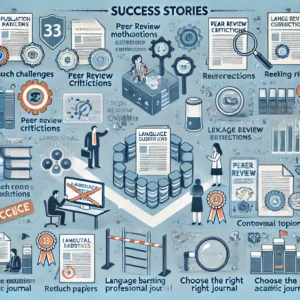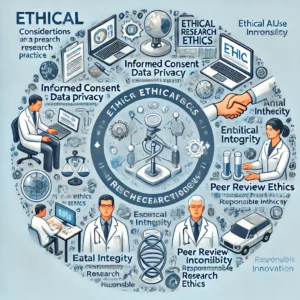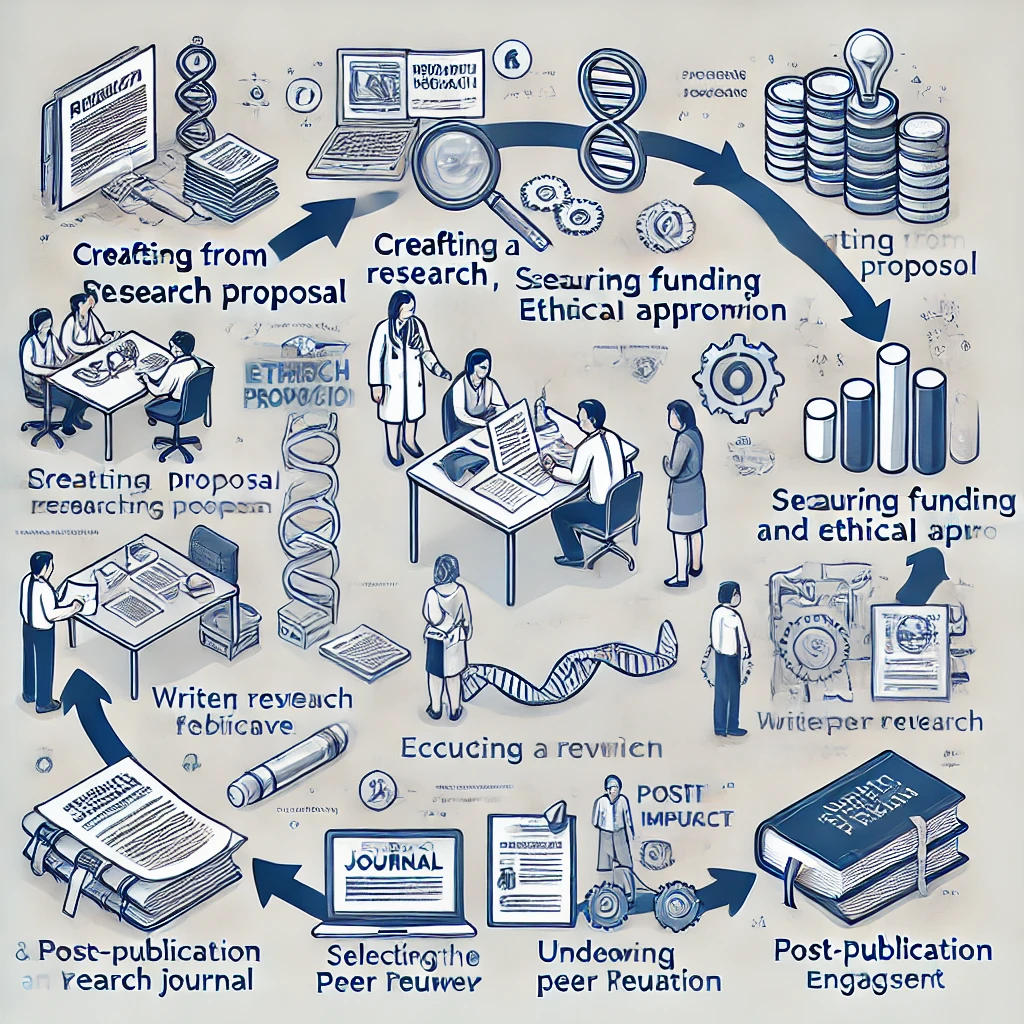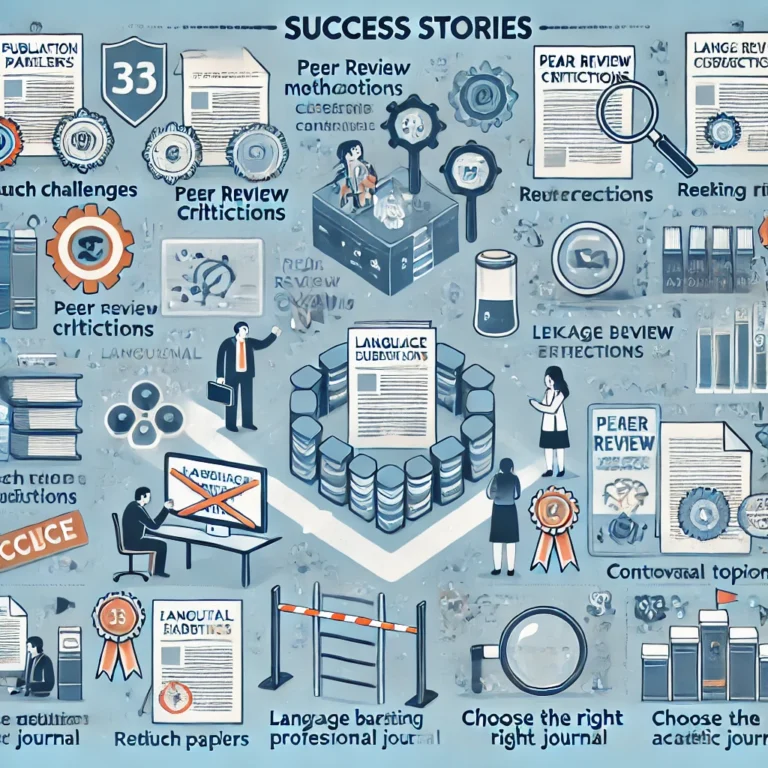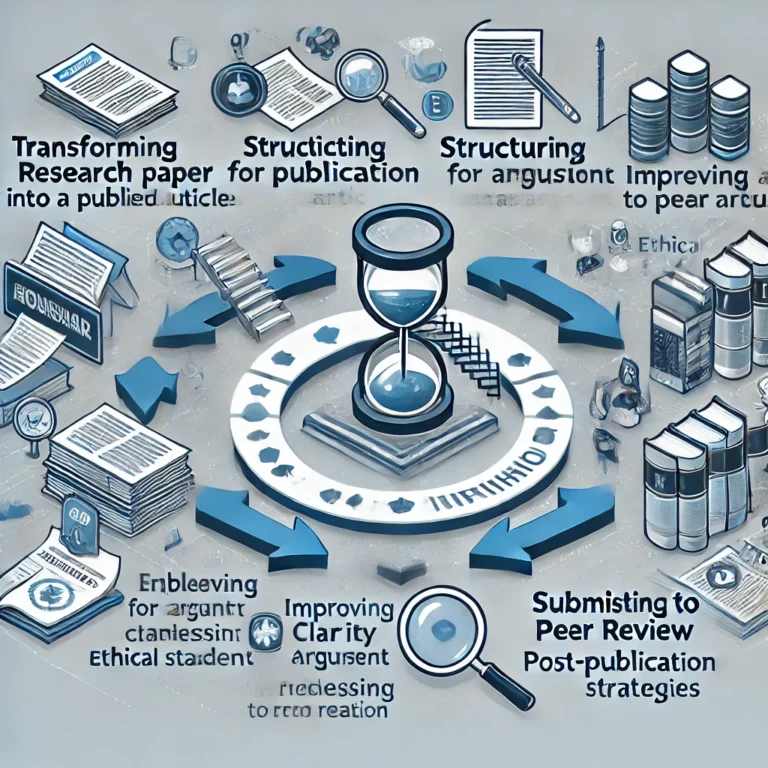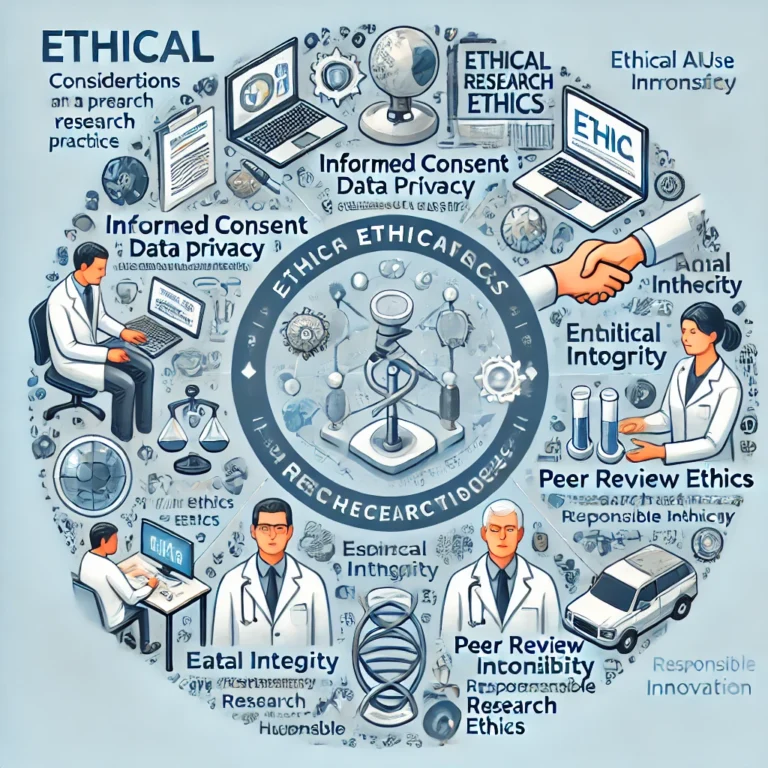The journey from a research proposal to a published academic article is a structured but challenging process that requires strategic planning, persistence, and adaptability. Below is a step-by-step guide illustrating the key stages involved in achieving academic success.
1. Crafting a Strong Research Proposal
A well-structured research proposal sets the foundation for a successful study.
Key Components:
✅ Clear Research Question – Define a specific, feasible, and impactful question.
✅ Literature Review – Establish the research gap and justify the study.
✅ Methodology – Detail data collection and analysis strategies.
✅ Expected Outcomes – Describe potential contributions to the field.
🔹 Example: A researcher in public health proposes a study on the effects of telemedicine on rural healthcare accessibility.
2. Securing Funding and Ethical Approval
Research often requires grants and ethical clearance, especially when involving human or animal subjects.
Steps to Approval:
📌 Apply for Research Grants – Identify funding sources (e.g., NSF, NIH, EU Horizon).
📌 Institutional Review Board (IRB) Approval – Ensure ethical compliance.
📌 Data Protection & Consent – Follow privacy regulations like GDPR and HIPAA.
🔹 Example: A psychology researcher secures funding from a mental health organization after demonstrating the societal impact of the study.
3. Conducting the Research
After approval, researchers execute their study with precision and adherence to methodology.
Best Practices:
✅ Maintain Research Integrity – Avoid fabrication or selective reporting.
✅ Use Robust Data Analysis – Apply appropriate statistical or qualitative methods.
✅ Document Findings Carefully – Keep detailed notes for reproducibility.
🔹 Example: A physics researcher running simulations ensures data reliability by cross-validating results with existing models.
4. Writing the Research Paper
A compelling research paper presents findings in a structured and concise manner.
Typical Structure:
📌 Abstract – A concise summary of objectives, methods, and results.
📌 Introduction – Contextualizes the research problem.
📌 Methodology – Explains experimental procedures.
📌 Results & Discussion – Presents data, insights, and interpretations.
📌 Conclusion – Summarizes findings and suggests future research.
🔹 Example: A medical researcher ensures clarity by using precise terminology and well-structured figures.
5. Choosing the Right Journal
Selecting an appropriate journal increases the likelihood of publication.
Selection Criteria:
✅ Scope & Relevance – Align with the journal’s audience.
✅ Impact Factor – Consider high-visibility journals for broader influence.
✅ Open Access vs. Subscription-Based – Decide based on accessibility preferences.
🔹 Example: A sustainability researcher submits to Environmental Research Letters for wider impact.
6. The Peer Review and Revision Process
Most academic papers undergo rigorous peer review before acceptance.
Handling Reviewer Feedback:
🔹 Minor Revisions – Address comments with small adjustments.
🔹 Major Revisions – Conduct further analysis or rewrite sections.
🔹 Resubmission Strategy – Respond professionally to reviewer critiques.
🔹 Example: A chemistry researcher revises figures and reanalyzes data to address reviewer concerns.
7. Publication and Post-Publication Engagement
After acceptance, researchers promote their work for maximum impact.
Post-Publication Strategies:
✅ Share on ResearchGate & Google Scholar – Increase visibility.
✅ Present at Conferences – Engage with the academic community.
✅ Monitor Citations – Track research influence using Scopus or Web of Science.
🔹 Example: A computer scientist collaborates with industry partners after publishing a groundbreaking AI study.
Conclusion
The journey from proposal to publication is demanding but rewarding. By following a structured approach, embracing feedback, and engaging with the research community, scholars can achieve academic success.
Would you like a checklist for each stage or a visual representation of this journey? 😊

